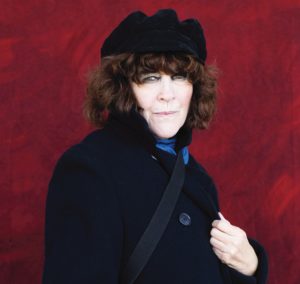In a May 30, 2021 email to Marlene Newman, a Key West neighbor, the celebrated novelist Marie-Claire Blais alluded affectionately to the Wellfleet house she occupied in the 1960s: “Weeks ago I received a letter by mail from the lady who is now living in my house on Pamet Point Road,” she wrote. “I was very young when I was there, living and working in the upper room and writing with my Labrador dog, Gilou, but it is so sweet to receive this message.”

Blais died at her home in Key West on Nov. 30, 2021. She was 82.
Blais published her first novel, La Belle Bête, in 1959. She was 20. A year later she came to Cambridge where she met painter Mary Meigs, who, in 1963, invited her to live in her house in Wellfleet, which she shared with the feminist writer Barbara Deming. They were all part of Edmund Wilson’s circle of “writers and painters who were working freely and exchanging ideas,” as Wilson put it.
With his support, she received Guggenheim grants in 1963 and 1965. She published five novels during her time in Wellfleet: A Season in the Life of Emmanuel (1965), The Fugitive (1966), David Sterne (1967), The Manuscripts of Pauline Archange (1968), and Dürer’s Angel (1970).
Wilson had met Blais in Montreal in 1961. He recorded his first impression of her in his journal: “She is perfectly self-possessed and has an unusual simplicity and directness that are the signs of a remarkable person.” In his O Canada, An American’s Notes on Canadian Culture (1965), Wilson observed that Blais “is a true phenomenon, a writer in a class by herself.”
In 1972 Blais and Meigs decamped to Brittany, leaving Deming behind.
The daughter of Fernando and Veronique (Nolin) Blais, Marie-Claire was born on Oct. 5, 1939 in Quebec. The eldest of five children, she grew up in the working-class neighborhood of Limoilou in Quebec City. She was educated in a convent school, but at 15 she went to work to help her financially strapped family. A night school course in creative writing at Laval University altered the course of her life.
Blais published nearly 30 novels, a dozen plays, four volumes of poetry, an autobiography, and social criticism; she received more than 30 literary awards, including two knighthoods, the Governor General’s Literary Award for French-Language Fiction four times, and the Matt Cohen Award, sponsored by the Writers’ Trust of Canada. Her fiction has been adapted for ballet, theater, film, and a television series, and she was awarded eight honorary doctorates.
Her work was never, as critic Steven Beattie put it, “a comfortable reading experience.” La Belle Bête (published in English as Mad Shadows) was criticized for its violence and vivid language, and each volume of her 10-book series Soifs, Beattie wrote, “is written as a single paragraph, sometimes without benefit of discrete sentences and full stops.”
“It’s our duty as writers,” Blais said in an interview, “to penetrate these terrible things. As writers, it’s very important to try to understand what’s happening in modern life.”
After Mary Meigs died in 2002, Blais spent more time in Key West, in 2008 buying a cottage formerly owned by John Hersey. Her new neighbors were Bill and Marlene Newman, who own a house in Wellfleet.
Over the last 10 years of Blais’s life, she, Marlene, and Bill often shared evenings of oysters and wine as they discussed literature and the state of the world. Blais drank only white wine because, Bill said, “she was the only French person who didn’t like red wine.”
Blais continued to write until the end. “She worked all of the time,” Bill said, and because she did not cook, he and Marlene would leave meals on her doorstep. She was also “a night owl and would go out late at night to bars to observe and to talk to people.”
In 2013 Blais became an American citizen, though after 2016 “she was horrified by American politics,” said Bill. She was “a dedicated socialist, if not a card-carrying Communist,” he added.
When Hurricane Irma struck just north of the Florida Keys in 2017, Blais refused to evacuate. “She viewed the storm as an experience worth having,” Bill said. “She was tough, really tough.”
Blais is survived by her brothers, Michel and Robert, and her sisters, Therese and Helene.
